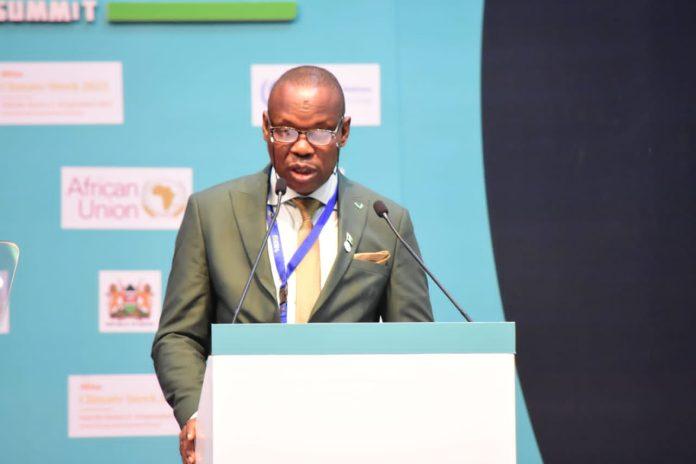The Nigerian government, led by the Minister of State for Environment, Dr. Iziaq Salako, has announced plans to conduct periodic reviews of the gas flaring reduction plans of both international and indigenous oil companies. This move aims to ensure alignment with the national goal of ending routine gas flaring by 2030.
Dr. Salako made this announcement during a national stakeholders engagement meeting on methane mitigation and reduction in the oil and gas sector, held in Abuja on Tuesday. Methane, a potent greenhouse gas, poses significant threats to both climate goals and public health.
Addressing the gathering, Dr. Salako emphasized the importance of reducing methane emissions, particularly in the oil and gas industry, to bolster climate action and unlock benefits for public health, food security, and economic development.
He highlighted collaborative efforts among government institutions in developing methane guidelines and affirmed the commitment of the Federal Ministry of Environment to oversee the review of oil companies’ plans to end routine gas flaring by 2030. Additionally, Nigeria is set to embark on methane reduction projects to achieve its commitment to reducing emissions and achieving net-zero emissions by 2060.
The stakeholders engagement event served as a platform to discuss the complexities of methane mitigation and reduction within Nigeria’s oil and gas industry. Presentations provided insights into existing policies, implementation strategies, and key stakeholders involved in these efforts.
Dr. Salako reiterated President Bola Tinubu’s commitment to environmental sustainability and climate action, aligning with Nigeria’s obligations under multilateral environmental agreements.
Mahmud Kambari, the Permanent Secretary of the Ministry, emphasized the necessity of addressing methane emissions in the oil and gas sector, stressing the importance of collaboration and innovation to drive sustainable development and enhance energy security.
Dr. Olumide Abimbola, Executive Director of the Africa Policy Research Institute (APRI), highlighted the urgent need to address methane emissions’ impacts on climate and the environment. He emphasized the strategic importance of proactive steps to reduce emissions, aligning with Nigeria’s climate action commitments and sustainable development goals.
The engagement event marked a significant milestone in collective efforts to mitigate methane emissions, providing a platform for stakeholders to share insights and chart a unified course towards sustainable methane reduction in Nigeria’s oil and gas sector. Through constructive dialogue and collaboration, stakeholders aim to identify challenges, explore opportunities, and pave the way for effective and sustained action.











